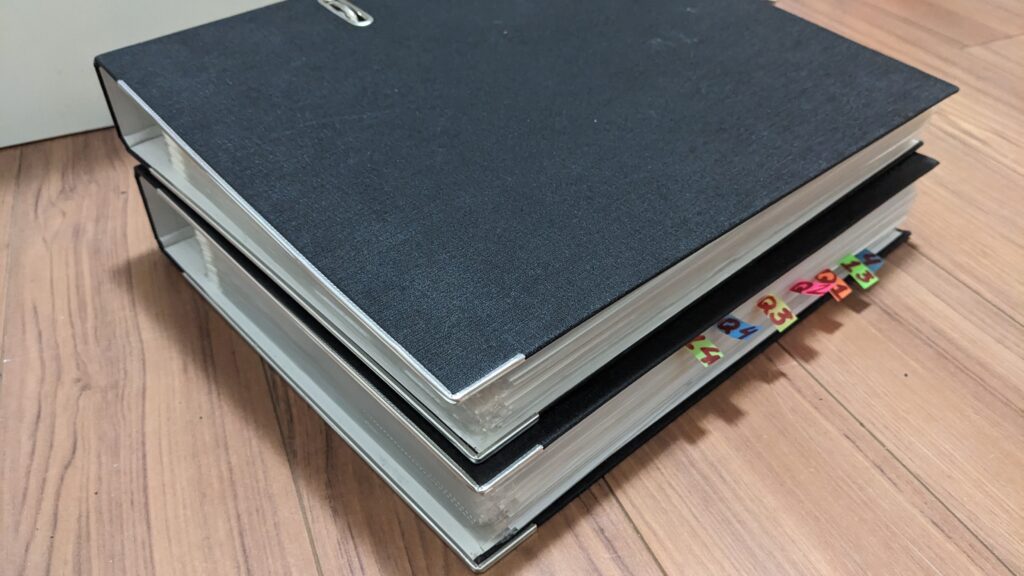If you are in a knowledge job, do yourself a favor and document everything as if your activities and thoughts were relentlessly producing logs similarly to a production server. Make it a habit and develop it so it becomes second nature. Offload cognitive burden to your computer, you don’t need and won’t be able to hold all of that information in your brain.
Let me give some of my personal examples and then follow up with how this was useful to me and others.

1:1 meetings
We all have 1:1 meetings: with our managers, peers, other stakeholders. I have a running doc for each individual person and take notes of every work conversation. For every person I create a go-link (something like go/person-andriy). This helps in 3 different ways:
- Adding topics. Every time I think about a topic to discuss with someone it is basically very keystrokes away. never have to go over the mental struggle of “Oh, what was that thing I had to talk to them about?”
- Searching for info. This one is probably obvious, but just to emphasize, I think our memories work by association, and it is often easier to look up something if you have a person in mind for a specific topic.
“Talk to X” docs
I extended this practice of storing topics for conversations into my personal life. I’m usually not documenting conversations themselves as they happen over coffee or walk and it would have been super weird to type during those. At the same time those docs work as a quick refresher and I found that in most cases this hugely enriches my conversations.
Cross-referencing everything
Cross-reference! cross-reference! When writing documents we obviously reference the sources of information, but a step further is to also do it in reverse (if possible). This helps connect the information and traverse it in any direction. So, if there was a strategy created based on a dozen of discussions with multiple teams, adding a link to that strategy to each discussion’s document will help each team relate to what that discussion has led to.
Documenting before and after religiously
A new practice I picked at Google is to capture “Landed Impact” in the design document after the actual launch. A design document would normally have effort justification, which often includes expected impact, but then “Landed Impact” would capture what actually happened. And I keep adding to that section. As a very specific example, I finished a project that reduces the monetary impact of outages a couple of years ago, and relatively recently there was an outage that would have cost us a lot more money if that project wasn’t done. I simply went to that old doc and documented this more recent impact. Why spend effort on this? Here we go:
Artifacts pay off
Presence of good artifacts makes a huge and oftentimes decisive difference to the outcomes of performance reviews and promo discussions. Think about the promotion process, you cannot even imagine how the presence of solid artifacts is important. With the artifacts in place people don’t have questions, they are like “here is the impact, here is leadership, this is influence, SOLID case”. Instead if artifacts are sloppy it becomes hard to drive conclusions from them, people are like “scope of work is unclear, impact might not be for the next level”. With good artifacts you are offloading cognitive load not just for yourself but for others, you make their decision process easier and they also feel like their responsibility is taken care of.
Unfinished work
Do you know those dreadful situations when a project is axed? This could be in your control (you didn’t find enough impact in work) or outside of your control (reorgs made this part of thing irrelevant, it is too late to market). Are a few months of your effort all waste? Nope, if you documented the learnings, basically you have your retrospective and learnings document ready. You hand it over to leadership and they can use it as a clear case of work being done. A quick failure is also ok as long as there is learning from it and how do you know if there was learning if there is nothing in the end?
Tooling
Does tooling matter? Well, someone could argue that it doesn’t as long as it does the job, but I’m yet to find any tool that works as well as Google docs: it is accessible everywhere you log in, searchable, shareable, collaborative. Works well at work and works well for personal things. Even this blog post originated in a Google Doc. And, yes, I tried other tools.
Conclusion
Same as the introduction: do yourself a favor and document everything as if your activities and thoughts were relentlessly producing logs. Offload cognitive overhead to docs and make your brain busy with now.

codemore code
~~~~